
Wayne E. ARNOLD (University of Kitakyushu)
Wayne E. Arnold is an Associate Professor of American Studies at the University of Kitakyushu. Having earned his PhD in American literature from the University of Louisiana at Lafayette, he has been teaching American culture and literature in Japan since 2013, including courses on travel cultures, urban studies, and American culture. His research focus is Henry Miller and Japan. This topic has brought him to more than 28 archive libraries around the world in an effort to uncover Miller’s relationship with Japan.
Presentation: The Closeness of Close Up: Behind the Scenes of Carl Koch’s Nippon (co-presented with Adrian Wood)
Panel 9: History, Industrial Infrastructure and Creative Labour
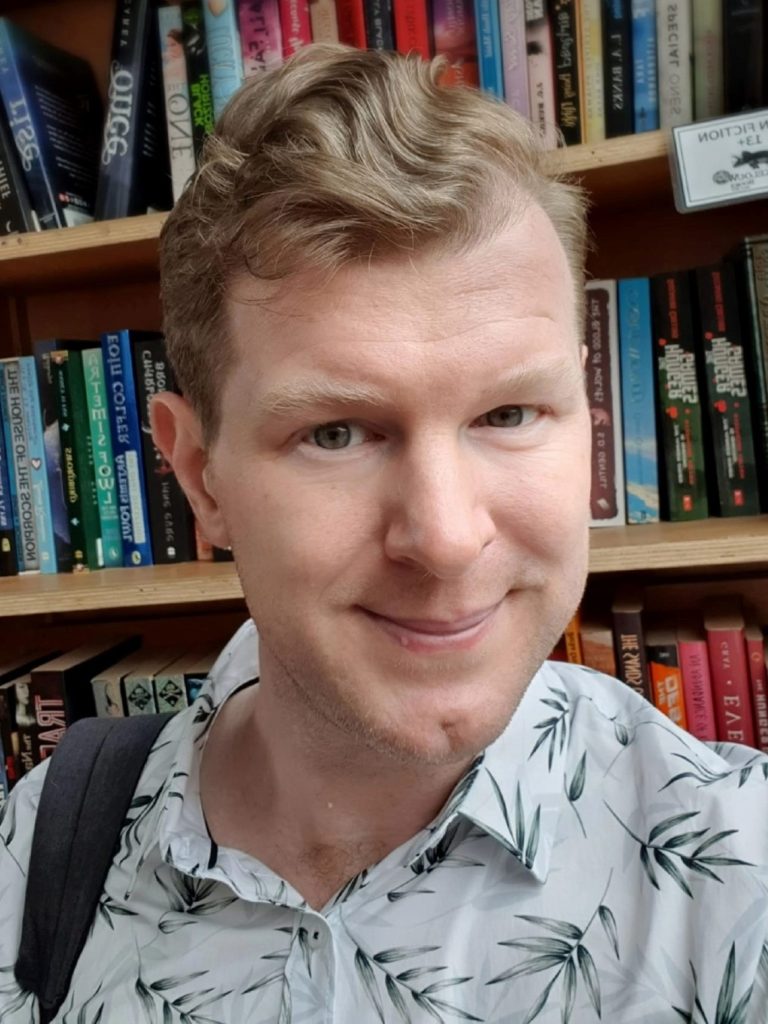
Thomas BAUDINETTE (Macquarie University)
Dr Thomas Baudinette is Senior Lecturer in Japanese and International Studies, Department of Media, Communication, Creative Arts, Language, and Literature, Macquarie University (Sydney, Australia). Thomas’s scholarly research focuses upon the role of Asian popular culture in informing knowledge about gender and sexuality across East and Southeast Asia. His first book is Regimes of Desire: Young Gay Men, Media, and Masculinity in Tokyo (University of Michigan Press, 2021). His second book is Boys Love Media in Thailand: Celebrity, Fans, and Transnational Asian Queer Popular Culture (Bloomsbury, forthcoming). His Twitter account is @tbaudinette
Presentation: The Films of Chookiat Sakveerakul and the Mainstreaming of Queer Romance in Contemporary Thai Media Culture
Panel 8: Cultural identity and Popular Cinema
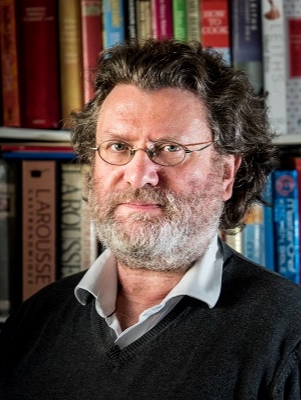
Paul BEVAN (University of Oxford)
Dr Paul Bevan is Departmental Lecturer in Modern Chinese Literature and Culture at the University of Oxford. From 2018 to 2020 he worked as Christensen Fellow in Chinese Painting at the Ashmolean Museum. His latest book is a translation of The Adventures of Ma Suzhen: An Heroic Woman Takes Revenge in Shanghai, recently published by Palgrave Macmillan. He has written two monographs: ‘Intoxicating Shanghai’: Modern Art and Literature in Pictorial Magazines during Shanghai’s Jazz Age (Brill, 2020), and A Modern Miscellany – Shanghai Cartoon Artists, Shao Xunmei’s Circle and the Travels of Jack Chen, 1926-1938 (Brill, 2015).
Presentation: Ma Suzhen: An Heroic Woman Takes Revenge
Panel 5: Body, Gaze, and feminist Approach

Nandana BOSE (Independent)
Dr. Nandana Bose is an independent film scholar and author. She has published on popular Hindi cinema, censorship, stardom and celebrity cultures, and contemporary Korean cinema in such academic and popular film and media journals as Celebrity Studies, Cinema Journal and Senses of Cinema. In another life she used to be a tenured professor in the U.S.
https://independent.academia.edu/NandanaBose
Presentation: Reclaiming the Pioneering Cinema of Sai Paranjpye
Panel 9: History, Industrial Infrastructure and Creative Labour

Lydia BRAMMER (University of Warwick)
Lydia Brammer is currently a part-time PhD student at the University of Warwick. Having studied Film and Japanese Studies at Oxford Brookes University (2006-2010), followed by a Master’s degree in Film Studies at the same institution, Lydia decided to pursue her interests in Japanese cinema at PhD level. Lydia’s research combines elements of Film Studies and Japanese Studies, with a specific focus on her main interest in women in post-war cinema. As well as undertaking a PhD, Lydia works in academic publishing and has done for nine years. She is currently a Customer Insights Analyst at the open access scientific publisher, Frontiers.
https://warwick.ac.uk/fac/arts/scapvc/film/research/graduate_research/brammer/
Presentation and poster exhibition: Forgotten Melodrama: Girlhood and Relatability in Ayako Wakao’s Early Star Image
Panel 1: Woman on the Post-War Screen
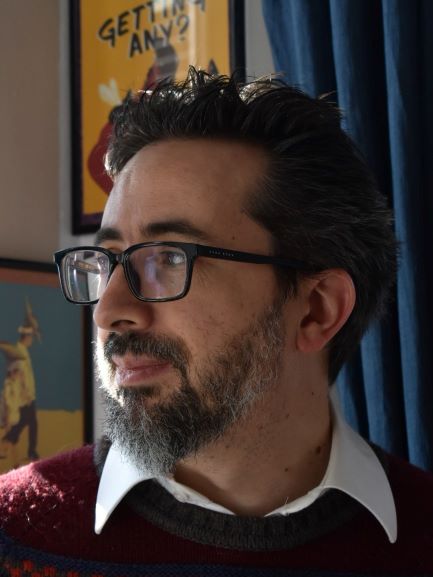
Giacomo CALORIO (University of Milan-Bicocca)
Ph.D. in Digital Humanities at the University of Genoa, currently non-tenure track Assistant Professor of Japanese Language and Culture at the University of Milan-Bicocca, Italy. My research area revolves around Japanese Cinema and Visual Culture. I have written monographs on J-Horror (2005), director Kurosawa Kiyoshi (2007), actor Mifune Toshirō (2011), and Japanese Cinema reception abroad in the digital age (2019).
https://en.unimib.it/giacomo-calorio
https://unimib.academia.edu/GiacomoCalorio
Presentation: Doomed to Oblivion? Contemporary Japanese Cinema from the Perspective of Sports Film
Panel 10: Representation, Recreation and Reception
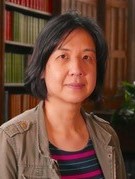
Felicia CHAN (University of Manchester)
Felicia Chan is Senior Lecturer in Screen Studies at the University of Manchester where she researches the construction of national, cultural and cosmopolitan imaginaries in film, well as the influence of institutional and industrial practices on the production, distribution and reception of film. She is author of Cosmopolitan Cinema (2017), co-editor of Chinese Cinemas: International Perspectives (2016) and founding member of the Chinese Film Forum UK.
Presentation: Cinema Before Nation: Historiographical journeys into ‘transnational cinema’ in pre-war Southeast Asia
Panel 3: Shifting Cultures and Instruments of Forgetting in East and South-East Asian cinema
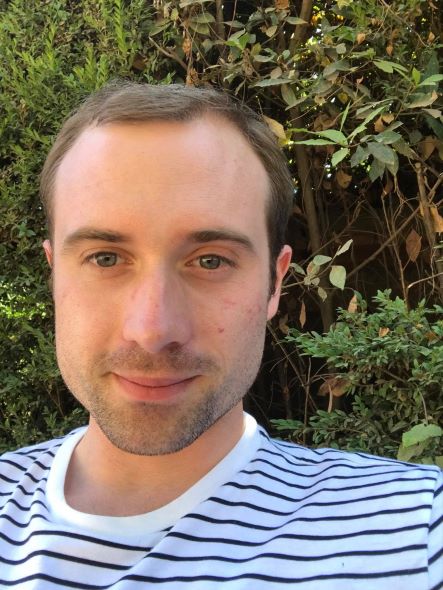
Tom CUNLIFFE (University College London)
Tom Cunliffe is an associate lecturer in film studies at UCL. His essays have appeared in journals including Film History, Framework and Screen. He is currently working on a book about the filmmaker Lung Kong and is co-editing a special issue of the Journal of Chinese Cinemas on the topic of the politics of Hong Kong left-wing cinema 1950s-1970s.
https://www.ucl.ac.uk/european-languages-culture/people/tom-cunliffe
Presentation: Colonial Capitalist Melodrama: Political Critiques in Popular Hong Kong Films of the 1950s-1960s
Panel 6: politics, censorship and popular screen culture

Fraser ELLIOTT (University of Edinburgh)
Fraser Elliott is Lecturer in Film, Exhibition and Curation at the University of Edinburgh. His research specialises in contemporary Hong Kong cinema and the international circulation of Chinese-language films with a particular eye to the power these processes hold over how the canon of “Chinese cinema” is understood. He is also a member of the Chinese Film Forum UK.
Presentation: Crazy Bumpkins and City Slickers: Sowing seeds for the Hong Kong New Wave in Shaw Brothers’ 1970s comedies
Panel 3: Shifting Cultures and Instruments of Forgetting in East and South-East Asian cinema

Yushi HOU (University of Southampton)
Dr Yushi Hou is a PhD at the Film Department, University of Southampton. Her research interests include Chinese cinema, film noir, genre studies, and cinematic space. She has forthcoming publications on contemporary Chinese femme fatale figures, and she is currently working on her monograph about urban space in contemporary Chinese neo-noir.
https://www.southampton.ac.uk/film/postgraduate/research_students/yushi-hou.page?
Presentation: Rethinking Female Spies in Chinese Cold War Cinema: Femme Fatale, Anti-espionage Film, and Socialist Myth
Panel 1: Woman on the Post-War Screen
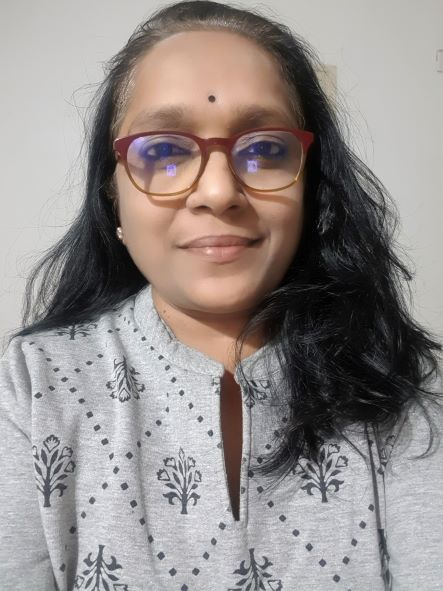
Kiranmayi INDRAGANTI (Srishti Manipal Institute of Art, Design and Technology)
Kiranmayi Indraganti is a filmmaker and academic with interests in film direction, screenwriting and the writing of histories of women. With a practice in documentary and collaborative work in media production, Kiran has showcased her work on forums such as Mumbai International Film Festival for Documentary, Short film and Animation (MIFF) 1998, 2006, Ethnografim Festival, 2014 among others and at film society events closer home. She has showcased her debut feature film “Rallalo Neeru” (Hidden Waters, 2020) at several film festivals. Kiran holds a PhD in Film Studies from the University of Nottingham, UK and an MFA in Film Production from York University, Toronto, Canada. Her publications include, among others, a book with Oxford University Press (OUP) titled Her Majestic Voice.
Presentation: One Tune, Many Languages: New Multi-language Platforms of South Indian Cinema
Panel 9: History, Industrial Infrastructure and Creative Labour

Esther JOHNSON (Sheffield Hallam University)
Esther Johnson (MA, RCA) works at the intersection of artist moving image and documentary. She is former recipient of the Philip Leverhulme Research Prize, and is Professor of Film and Media Arts at Sheffield Hallam University, UK. Esther’s poetic portraits focus on alternative social histories and marginal worlds, to reveal resonant stories that may otherwise remain hidden or ignored. The repositioning of archival material is explored as a way of looking at intangible cultural heritage, and of addressing the relationship between memory and storytelling. Her work has exhibited in 40+ countries, and broadcast on BBC, Channel 4, ABC Australia, BBC R4, Resonance FM and RTÉ radio. Screenings include at Barbican; BFI LFF; CPH:Dox; ICA; NASA; Internationale Kurzfilmtage Oberhausen; IDFA; Istanbul Biennial; and Tate galleries.
Closing session: Dialogue on researching Asian Cinema: method, collaboration, and cross-broader scholarship of film history

Paul KENDALL (University of Westminster)
Paul Kendall is a Senior Lecturer in Chinese Cultural Studies at the University of Westminster. His research interests include urban space, everyday life, translation and reception. His monograph, The Sounds of Social Space: Branding, Built Environment, and Leisure in Urban China (2019), examines the production of social space in Kaili, a small city in southwest China, through its branding as “the homeland of one hundred festivals”, ethnicized public spaces, high-decibel soundscapes, amateur music-making practices and inhabitants’ conceptualizations of music, ethnicity and the city. His most recent journal article, “Translating Wang Xiaoshuai: From Third Front to Cultural Revolution” (2022), examines how translation and long-standing assumptions about PRC history have shaped the reception of this sixth-generation director’s films outside of China.
Presentation: Forgetting Socialist Animation: Ma Liang and his Magic Paintbrush
Panel 10: Representation, Recreation and Reception
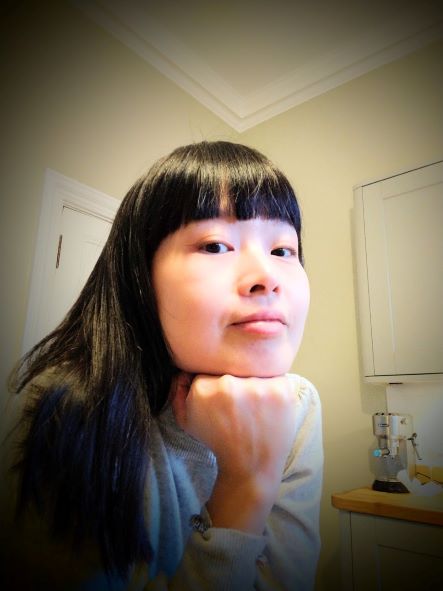
Nga Li LAM (Independent)
Dr Nga Li Lam has research interest in popular culture, with a focus on republican Shanghai and colonial Hong Kong. She is now an independent scholar working on a digital database on Cantonese popular periodicals (funded by Lord Wilson Heritage Trust).
Presentation: Controversies of British Film Quotas in Post-war South-East Asia
Panel 7: Governance, Distribution and Consumption
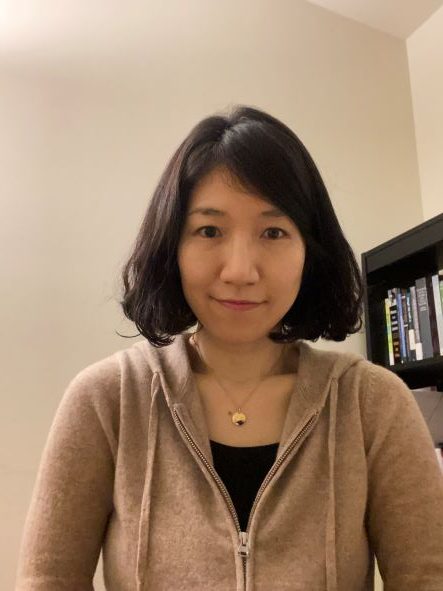
Hyo-Jeong LEE (Southern Illinois University)
Hyo-Jeong Lee is a Ph.D. candidate in the Department of Mass Communication and Media Arts at Southern Illinois University Carbondale. She is interested in cinematic representations of memory, trauma, and history, and indexicality and spectatorship in digital media. She studies the role of cinema in creating cultural memories of war and conflict. Her works have been recently published in the Television Series as Literature and the Middle West Review.
Presentation: The Ways for South Korean cinema to Cross the Border
Panel 7: Governance, Distribution and Consumption
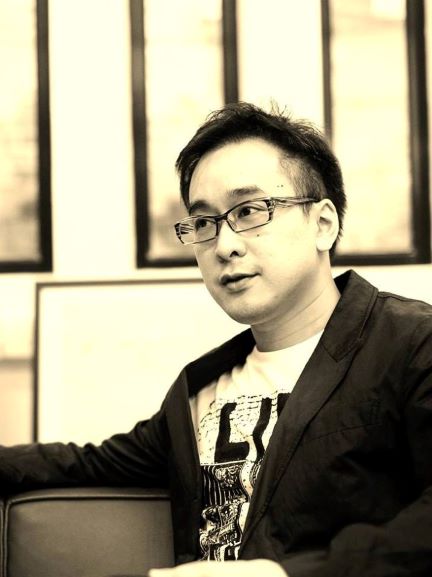
Chin-pang LEI (University of Macau)
LEI Chin-pang earned his PhD in Media and Cultural Studies from the University of Sussex in England. He is now an Assistant Professor in the Department of Communication at the University of Macau. His articles have been published by academic journals such as Asian Journal of Communication and Interventions: International Journal of Postcolonial Studies. He is also the author of 隱形澳門: 被忽視的城市與文化 [Invisible Macau: the Ignored City and Culture] and 夢伴此城: 梅艷芳與香港流行文化 [Dream and the City: Anita Mui and Hong Kong Pop Culture].
Presentation: Anita: Stardom and Cultural Memory in Hong Kong Cinema
Panel 8: Cultural identity and Popular Cinema
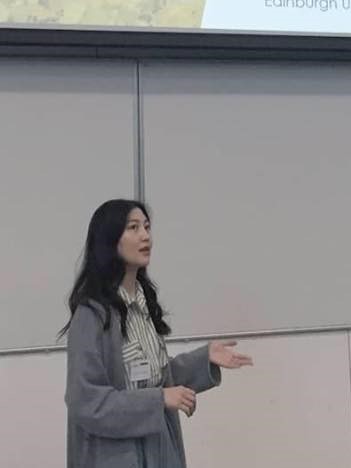
Yuan LI (University of Southampton)
Yuan Li is a PhD candidate in Film Studies at the University of Southampton, UK. With the continuous concern for authorship in Taiwan New Cinema, she received her Bachelor’s degree in Film and Television Studies from Beijing Normal University in 2016 and Master’s degree in Film Studies from the University of Southampton in 2017. Her current research interests include transnational Taiwan cinema and languages in Taiwanese films.
Presentation: Through a Glass Brightly: The Translingual Practice in The Great Buddha+ (2017) and Classmates Minus (2020)
Panel 8: Cultural identity and Popular Cinema
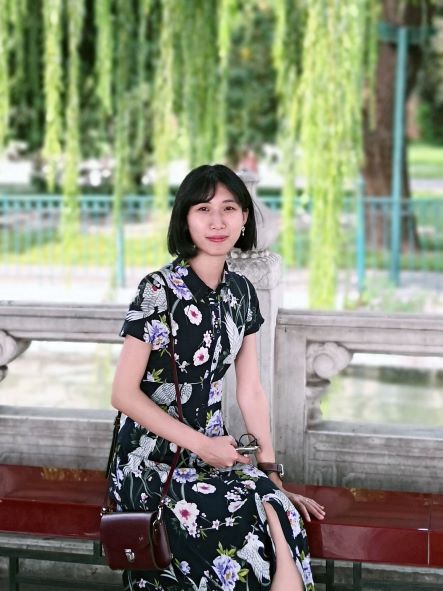
Yufei LI (University of Cambridge)
Yufei Li is a PhD candidate in Architecture at the University of Cambridge. Her research focuses on cinematic urban geographies and cultural placemaking within the East Asian context. She was the co-convener of Cambridge City Seminar 2021 and the Editor-in-Chief of Scroope: Cambridge Architectural Journal. She has been an overseas columnist of Urban China since 2020. Professionally, Yufei is an ARB registered architect and a RIBA Chartered Member in the UK. She practises architectural design in London and specialises in the renovation and restoration of cultural venues.
Presentation: Atlas in Motion: Visualising Manchuria in Moving Images
Panel 2: Space and Place

Stefano LOCATI (IULM University)
Stefano Locati is a post-doctoral research fellow at IULM University in Milan (Italy). His research focus is on Chinese and Japanese cinemas. He holds a Ph.D. in Literatures and Media and a master’s degree in philosophy. Among others, he has authored Sistema media mix. Cinema e sottoculture giovanili del Giappone contemporaneo (lit. “The Media Mix System. Cinema and Youth Subcultures of Contemporary Japan”, 2022) and Il nuovo cinema di Hong Kong. Voci e sguardi oltre l’handover (lit. “New Hong Kong Cinema. Voices and Sights beyond the Handover”, 2014, with Emanuele Sacchi).
https://www.iulm.it/en/iulm/ateneo/docenti-e-collaboratori/locati-stefano
Presentation: A New Inception: Reintroducing film genres in 1980s Chinese cinema
Panel 4: Style, Aesthetics and Genre Development

Łukasz MAŃKOWSKI (University of Warsaw)
Łukasz Mańkowski writes and teaches about Asian Cinema as a film critic and academic. He was selected to many critics programmes, including IFFR Young Critics 2021 and Berlinale Talents 2022 and is one of the mentors for Asian Cinema Education project. Łukasz words on Asian film can be found on Senses of Cinema, MUBI, Sight & Sound, Asian Movie Pulse, as well as his Asian cinema-focused blog, Kinema Chromatica. Aside from that, Łukasz is a Japanese translator and festival program consultant affiliated with Five Flavours Film Festival and New Horizons in Poland.
Presentation: Revisiting Kawashima Yūzō — The Forgotten Status of “The Graceful Brute” (1962)
Panel 9: History, Industrial Infrastructure and Creative Labour
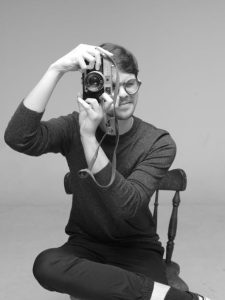
Jeferson MARTINS (Hanyang University)
jeferson.martins@hotmail.co.uk
Jeferson Martins is a Master’s candidate in Film Theory at Hanyang University
and holds a Bacharel of Communication at the Federal University of Juiz de Fora. He received a grant from Korea Global Scholarship Program, hosted by the Korean National Institute for International Education, and was a member of the “Aesthetics and Film Thought Research Group”. His research interests include North and South Korean Cinemas and their intersections with history, politics, and society. Martins published papers includes “The Juche Aesthetics: A Brazilian perspective of the North Korean Film ‘Pulgasari’ and “Korean Film Archive: ‘A Day Off’ and the Restoration of the Cinematographic Past”.
Presentation and poster exhibition: North Korean Film Industry in the 1970s: The Rise of Juche Aesthetics in Popular Films
Panel 4: Style, Aesthetics and Genre Development
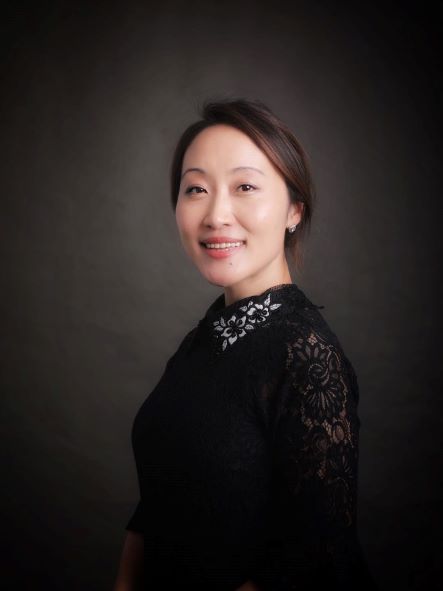
Hui MIAO (Xi’an Jiaotong-Liverpool University)
Dr Hui Miao is an Assistant Professor in Film Studies in the Department of Media and Communication at Xi’an Jiaotong-Liverpool University (XJTLU), China.
Presentation: Gender Negotiation of the Modelled Women: Subjectivity and Empowerment in Revolutionary Model Opera Films
Panel 5: Body, Gaze, and feminist Approach
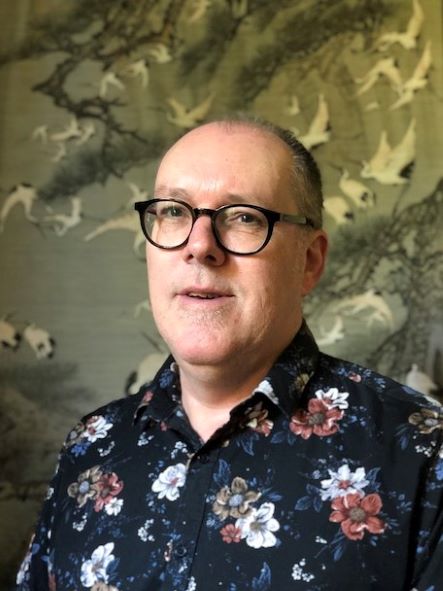
Peter C. PUGSLEY (University of Adelaide)
Peter C. Pugsley is Associate Professor/Reader at the University of Adelaide, Australia, where he teaches Asian Film Studies and Japanese Media Cultures. He is the author of Japanese High School Films: Iconography, Nostalgia and Discipline(2022), Exploring Morality and Sexuality in Asian Cinema: Cinematic Boundaries (2015) and Tradition, Culture and Aesthetics in Contemporary Asian Cinema (2013), and has published in many academic journals including the Journal of Japanese and Korean Cinema andAsian Cinema journal.
Presentation: Genre Tropes and Imagery in Japanese High School Films: Window Aesthetics in After the Rain (2018)
Panel 4: Style, Aesthetics and Genre Development
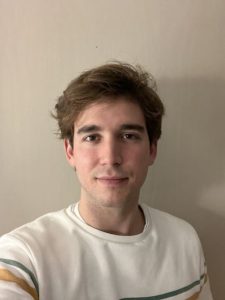
Arturo Cosano RAMOS (University of Málaga)
Arturo Cosano Ramos holds a degree in East Asian Studies from the University of Malaga and Seville and a Master’s degree in Applied Sociology from the University of Malaga. He has complemented his training with international mobility exchanges at the University of Incheon in South Korea and the University of Zadar in Croatia.
Poster exhibition: Women in Korean cinema: a study of women film directors in South Korea

Ariel SCHUDSON (Independent)
Ariel Schudson is an independent scholar, film archivist and film studies professional with two Master’s Degrees from UCLA. Her work is centered on classic Korean cinema and women’s representation. She is concurrently focused on Korean film and its relations to disability theory and archival studies (respectively). Her recent chapter on director Kim Ki-young’s cinema is forthcoming in a collected volume and she is completing research and writing on a journal article about Korean film history and film preservation. In 2019, she sold everything and moved to Korea with her cats. She is currently living, working and watching movies in Seoul.
Presentation: The Politics of Desire: Kim Soo-yong’s Burning Mountain and Women’s Representation
Panel 1: Woman on the Post-War Screen
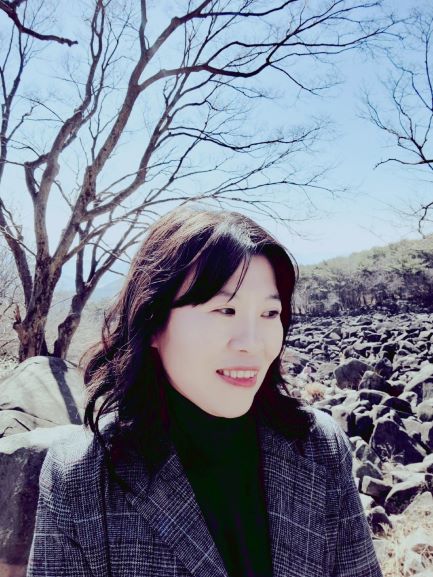
Kyoung-suk SUNG (Kyungpook National University)
Dr. Kyoung-suk Sung is a Lecturer/Academic Research Professor at the Kyungpook National University in South Korea. She received her M.A. and PhD in film studies from the University of Johannes Gutenberg Mainz, Germany. Her PhD thesis is about the conflict films as local-special film genres make the political issues regarding national breakdown and the relationship to North Korea the key topic of nationwide interest. Her research focuses especially on film sociology and the diverse functions of film along with heir meaning in this sociological aspect. With this focus she has been analyzing various film subjects, for example the interaction between film and society, East Asian cinema, the visual language of films and their effects over 20 years in Germany and South Korea. Her current longterm research project granted by the the National Research Foundation of Korea “A Study of the East Asian socio-critical Cinema: Genre-Theme-Effect” aims to expose the diversity of East Asian cinema’s visual forms of social critique through international comparison as well as its development as a medium of social criticism and culture of remembrance.
Presentation: Critical Zoom-in into the 80s. How Film Recalls Historical Event on the Screen: Collective Memories-Representation-Function, Focusing on Taxi Driver (2017) and 1987: When the Day Comes (2017)
Panel 10: Representation, recreation and reception
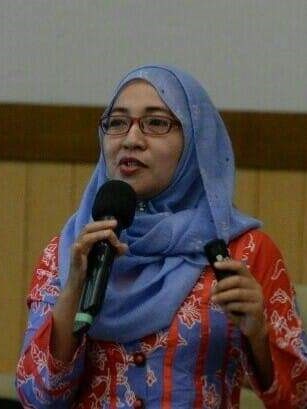
Dyna Herlina SUWARTO (University of Nottingham)
Dyna Herlina Suwarto is a PhD student in Film and Television Studies Program, University of Nottingham. She is co-founders of Jogja Netpac Asian Film Festival, Indonesian Film Studies (KAFEIN), Cinema House (Rumah Sinema) in Indonesia. Her research interest is related media audience, literacy, management and industries.
Presentation: The Visibility of Local Short Film During Covid 19 Pandemic
Panel 7: Governance, Distribution and Consumption
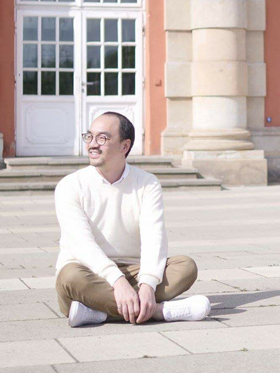
Enoch Yee-lok TAM (Lingnan University)
Enoch Yee-lok Tam is a Research Assistant Professor in the Department of Visual Studies at Lingnan University. He received his PhD from the School of Communication of Hong Kong Baptist University in 2018. His research interests include early Chinese cinema, Hong Kong cinema, and literature. His co-authored book on Hong Kong independent film, Indiescape Hong Kong: Critical Imagination and Interventions, was published in December 2018.
Presentation: The Forgotten Sexy Bombs: The Nude Stars in Hong Kong Cinema of the 1970s
Panel 5: Body, Gaze, and feminist Approach
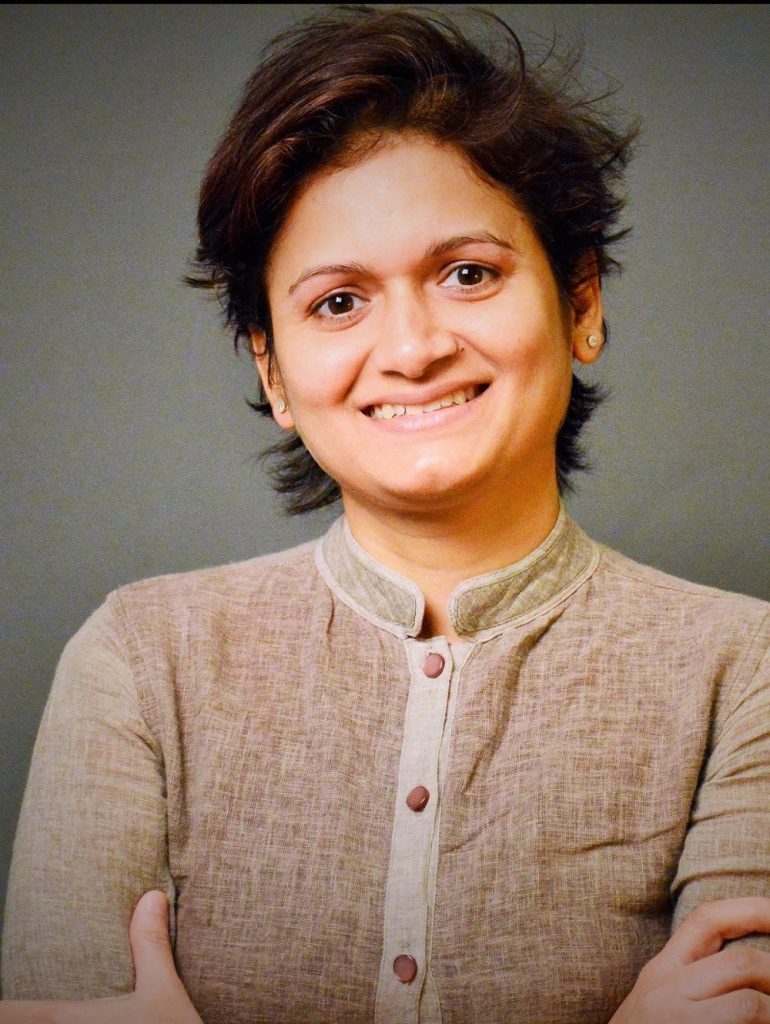
Sudha TIWARI (UPES)
Sudha Tiwari teaches at the UPES, Dehradun, India. She holds a PhD degree from Centre for Historical Studies, JNU (New Delhi). Sudha is a historian of modern and contemporary history of India, with special interest in film and institutional histories, culture and policy studies. She has been a recipient of the prestigious Fox International Fellowship at Yale University (2016-17). She was also awarded with the junior research fellowship by the Indian Council of Historical Research (2015-16, 2017-18). Some of her publications have appeared in journals like Economic and Political Weekly of India, and South Asian Popular Culture. She is currently working on a book monograph based on her doctoral thesis.
Presentation: “Spare the Brahmin”: Anxiety, Cinema, and Representation
Panel 8: Cultural Identity and Popular Cinema
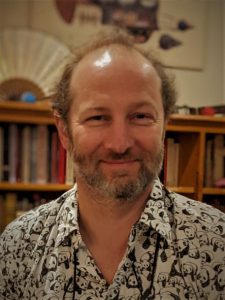
Guillaume VÉTU (University of Adelaide)
guillaume.vetu@adelaide.edu.au
Dr Guillaume Vétu is an Adjunct Fellow at the University of Adelaide. His PhD, ‘Beyond the Tree of the Living-dead: A Rhizoanalysis of Japanese Cinematic Zombies’ (2021) explores the proliferation of this genre in Japan and its multifaceted, folkloric, cultural and societal, domestic and transnational interconnectivities; all from which his current research in Media, Screen Studies and Popular Culture expands, including his first peer-reviewed publication ‘Animist Influence and Immutable Corporeality: Repositioning the Significance of Japanese Cinematic Zombies’ (East Asian Journal of Popular Culture, 2021). Dr Vétu also teaches Media and assists his peers with other research projects.
Presentation: Buried Blockbuster: Unforgetting Prophecies of Nostradamus (Japan, 1974)
Panel 4: Style, Aesthetics and Genre Development

Tianxiang WANG (National University of Ireland, Galway)
Tianxiang Wang is a PhD student at Huston School of Film and Digital Media, National University of Ireland, Galway. Her research focuses on landscape and urban space in contemporary Chinese cinema. She completed her bachelor’s degree in the Department of Literature, Beijing Film Academy in 2015. After graduation, she spent three years
participating in the Chinese film and television industry as a practitioner.
Presentation: Landscapes in Feng Xiaogang’s Big Shot’s Funeral: An Intertextual
Approach
Panel 2: Space and Place
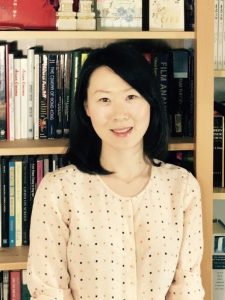
Yanjie WANG (Loyola Marymount University)
Yanjie Wang is an associate professor of Chinese literature and cinema in the Department of Asian and Asian American Studies at Loyola Marymount University, Los Angeles. She received her B.A. from Peking University, her MPhil from the Chinese University of Hong Kong, and her Ph.D. from the University of Illinois, Urbana-Champaign. Dr. Wang’s research areas include Chinese cinema, modern and contemporary Chinese literature, displacement and internal migration, ecocriticism, etc. Her articles have appeared in the Journal of Chinese Cinemas, Asian Cinema, Modern Chinese Literature and Culture, Concentric: Literary and Cultural Studies, American Journal of Chinese Studies, and Situations: Cultural Studies in the Asian Context, among others.
https://bellarmine.lmu.edu/aaas/faculty/?expert=yanjie.wang
Presentation: Landscapes from the Margin: Ethnicity, Geopolitics, and Border-crossing in Zhang Lu’s Dooman River
Panel 2: Space and Place
Andy WILLIS (University of Salford)
Any Willis is Professor of Film Studies at the University of Salford, a Senior Visiting Curator for Film at HOME, Manchester, and a founding member of the Chinese Film Forum UK.
Presentation: Ebola Syndrome (1996) and the Marginalisation of Popular Tastes
Panel 3: Shifting Cultures and Instruments of Forgetting in East and South-East Asian cinema
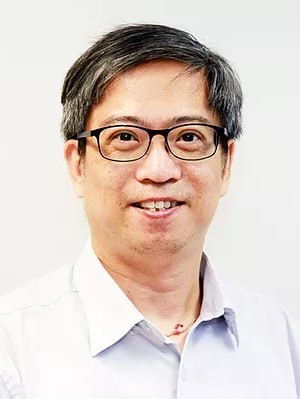
Heung-wah WONG (University of Hong Kong)
Dixon Heung-wah Wong is Associate Professor of Global Creative Industries at University of Hong Kong. He obtained his PhD in Social Anthropology from Oxford University in 1996. His research interests lie in the globalisation of Japanese popular culture, anthropology of business, Chinese kinship and marriage, and cultural policies in East Asia. He is the author of Japanese bosses, Chinese Workers: Power and Control in a Hong Kong Megastore (Hawaii University Press and Curzon, 1999) and co-author of a trilogy of Japanese adult videos which includes (1) Japanese Adult Videos in Taiwan (Routledge, 2014), (2) The Japanese Adult Videos Industry (Routledge, 2017), and (3) Censorship in Japan (Routledge, 2021). Wong is also the co-author of Tradition and Transformation in a Chinese Family Business (Routledge, 2020) and the author of various journal articles and chapters. He is currently working on several book projects including Cultural Policy and Identity Formation in Taiwan and Hong Kong (Routledge, forthcoming), Japanese Popular Culture in Greater China (Routledge, forthcoming), Japanese Popular Culture in Hong Kong (Routledge, forthcoming), Transnational Retailing in East Asia (Routledge, forthcoming), and Popular Culture and Formation of Hong Kong Identity (Routledge, forthcoming).
Presentation: Pink Film Theatres: the Theatrical Space vs Social Space (co-presented with Hoi-yan Yau)
Panel 2: Space and Place
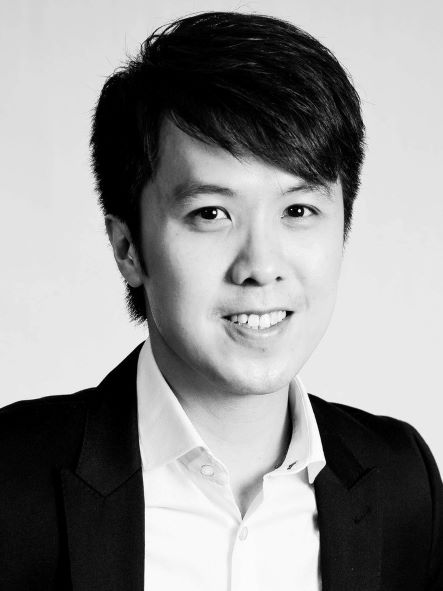
Wayne WONG (University of Sheffield)
Wayne Wong teaches in the School of East Asian Studies at the University of Sheffield. He holds a joint PhD in Film Studies and Comparative Literature from King’s College London and the University of Hong Kong. He has published essays in Asian Cinema, Global Media and China, Journal of Contemporary Chinese Art, and Martial Arts Studies. His research interests include comparative film theories and philosophies, Chinese and transnational cinemas, and action aesthetics. He is assistant editor of Martial Arts Studies.
https://sheffield.academia.edu/WayneWong
Presentation: Between Carnival and Censorship: Politics of the Comedic Kung Fu Body in Chinese Cinema
Panel 6: Politics, Censorship and Popular Screen Culture
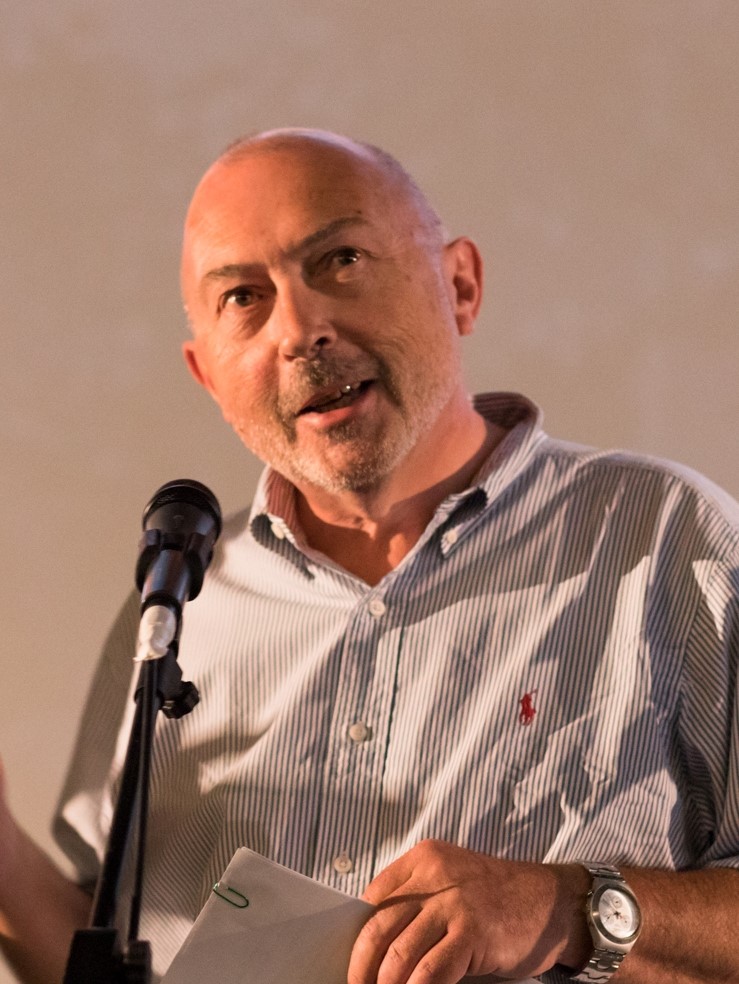
Adrian WOOD (Indepdent)
Adrian Wood is an internationally recognized archival film researcher, producer and film restorer. Born in the UK his career began in television there and soon became focused on historical documentary series that emphasized the responsibility of documentary makers to present ‘film as evidence’. For this work he has been honored with a Peabody Award, a BAFTA Special Award for his creative contribution to British television as well as numerous other awards from the US and Europe. After living in California he now resides in Fukuoka, Japan where he continues to research and write on archival film and film restoration topics.
Presentation: The Closeness of Close Up: Behind the Scenes of Carl Koch’s Nippon (co-presented with Wayne E. Arnold)
Panel 9: History, Industrial Infrastructure and Creative Labour

Jonathan WROOT (University of Greenwich)
Dr Jonathan Wroot is Senior Lecturer and Programme Leader for Film Studies at the University of Greenwich. He has previously published research on home media formats and Asian cinema distribution. He co-edited a collection entitled New Blood: Framing 21st Century Horror, for UWP, in 2021, in addition to his monograph on the Zatoichi film and TV franchise. Some of this research will be appearing in the forthcoming edited collection, Women in East Asian Cinema. He has contributed to the podcast series Beyond Japan and Second Features, as well as the 2022 Japan Touring Film Programme.
Presentation: The Forgotten Global Influence of the Zatoichi Franchise
Panel 7: Governance, Distribution and Consumption

Hoi-Yan YAU (Lingnan University)
Yvonne Hoi-yan Yau is a social anthropologist and Research Assistant Professor at Lingnan University, Hong Kong. Her major research interests include the globalization of Japanese pop culture in East Asia, pornographic culture in Taiwan and Hong Kong, sexuality and gender, and Japanese colonialism in Taiwan. She has published a number of articles and books on these topics including but not limited to ‘Cover Versions in Hong Kong and Japan: Reflections on Music Authenticity’, (2012, The Journal of Comparative Asian Development), ‘Sex as a Ritual: Transforming Women’s Sexual Being from “Human-like” to “Animal-like” in Taiwan’, (2011, East Asia: an international quarterly, co-authored with H.W. Wong), Japanese Adult Video Industry (2018, Routledge, co-authored with H.W. Wong). Censorship in Japan (2021, Routledge, co-authored with H.W. Wong).
Presentation: Pink Film Theatres: the Theatrical Space vs Social Space (co-presented with Heung-wah Wong)
Panel 2: Space and Place
Liao ZHANG (University of Nottingham)
Liao Zhang is a final year PhD candidate at the University of Nottingham. Her research interests include Chinese and Western (post)feminism, girl’s culture and girlhood cinema in East Asia, female (inter)subjectivity and female spectatorship. Liao’s academic background is an interdisciplinary one, combining Film Production (China), Special Effect and Sci-Fi Films (South Korea), European Studies (KCL, UK), Global Cinema and the Transcultural Studies (SOAS, UK), and Film Studies (UoN, UK). Beyond her PhD research, Liao serves as Lead Women’s Film Programme Curator at the UK-China Film Collab, Training Officer at the MeCCSA PGN, and Editor for Stanford Social Innovation Review, China.
Presentation: “I’ve Hated You, But You Are All I Have”:A Post-Feminist Examination of Girlfriend Culture in Chinese Girlhood Film
Panel 5: Body, Gaze, and feminist Approach
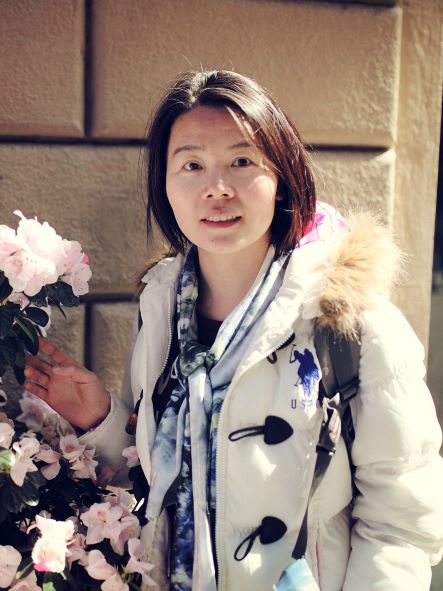
Weiqing ZHAO (Communication University of Zhejiang)
Weiqing Zhao a PhD in history and she works in the field of film censorship, media history, and modern Chinese urban culture. Her doctoral thesis focuses on film censorship in Shanghai and its influence on local culture between 1927 and 1943 and she received her doctorate at Ecole Normale Supépreure de Lyon in France in 2014. Now, she is working as Research assistant at Communication University of Zhejiang (China) and she has published several papers on the subject of film in Chinese or English.
Presentation: The Film Censorship in Shanghai French Concession (1927-1943)
Panel 6: Politics, Censorship and Popular Screen Culture
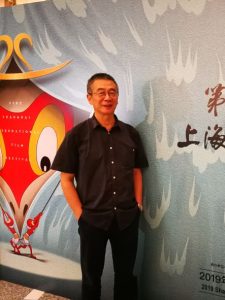
Xuelin ZHOU (University of Auckland)
Xuelin Zhou is Associate Professor in Media and Screen of the University of Auckland, New Zealand. He has published extensively in the field of Chinese-language film studies. He is the author of Young Rebels in Contemporary Chinese Cinema (Hong Kong University Press, 2007), Youth Culture in Chinese Language Film (Routledge, 2016) and Globalization and Contemporary Chinese Cinema: Zhang Yimou’s Genre Films (Palgrave, 2017). He is currently working on a book-length study on popular genre films in Taiwan between 1960s and 1980s.
Presentation: “Bridge of Spies”: Genre, Gender and Woman Secret Agent 001
Panel 1: Woman on the Post-War Screen